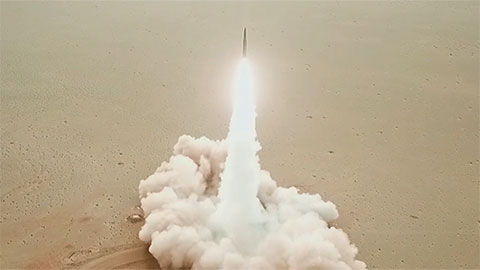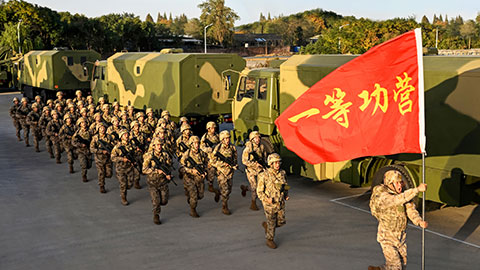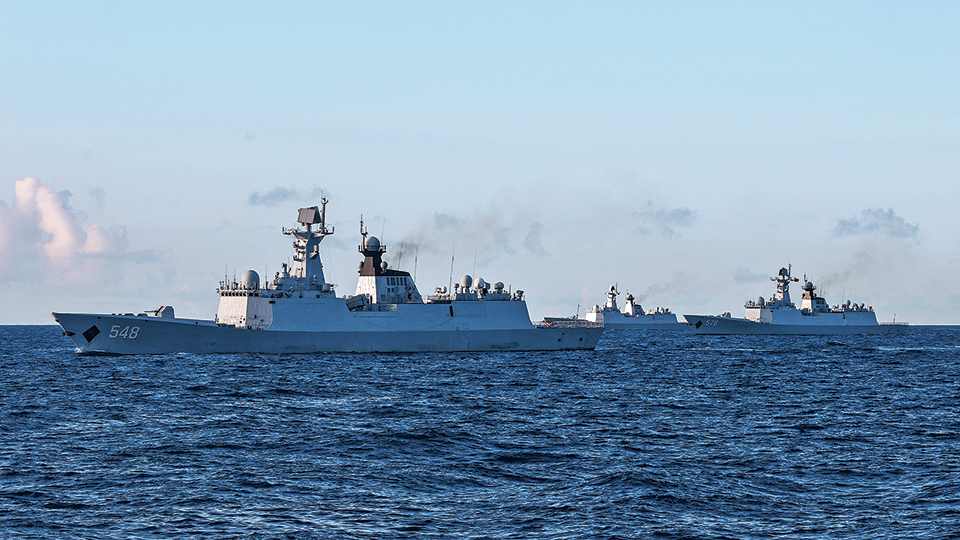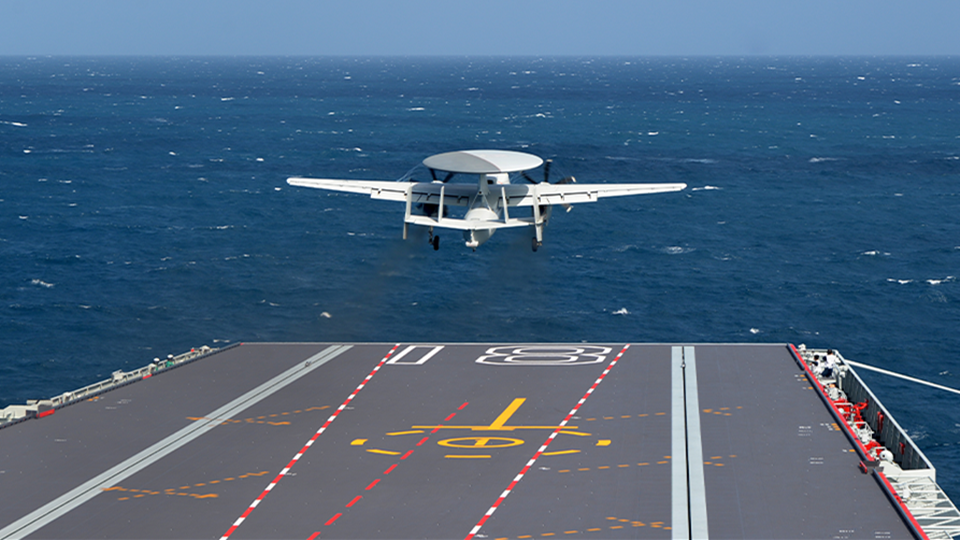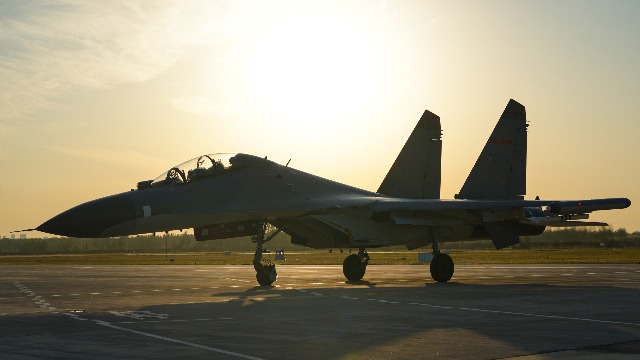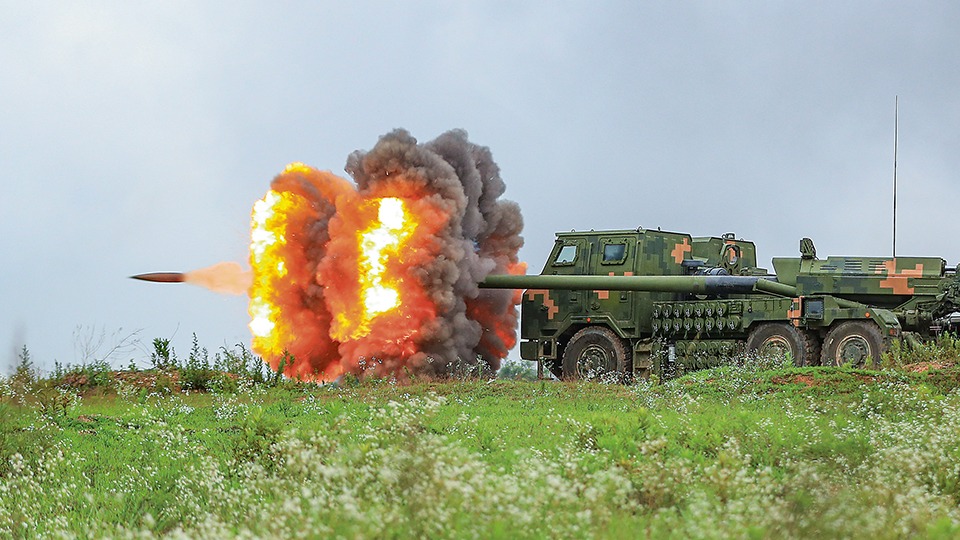By Zhao Xuelin, Xiao Zhaofan
According to media reports, Australia recently unveiled some performance characteristics of the AUKUS-class nuclear-powered submarines (SSNs), and announced that these submarines will be equipped with next-generation hypersonic missiles. This development marks a further upgrade in collaboration under the SSN-AUKUS program. Nowadays, despite facing opposition from the international community, the US, the UK, and Australia remain resolutein deepening their military alliance, advancing SSN cooperation that carries high risks of nuclear proliferation. This action is widely viewed as severely undermining regional security and stability.
The SSN-AUKUS program stands as a pivotal project within the AUKUS cooperation framework. Signed in September 2021 by the US, the UK, and Australia, the AUKUS agreement is structured around two primary pillars. Pillar 1 aims to assist Australia, a non-nuclear weapon state, in acquiring conventionally-armed, nuclear-powered submarines, with the next-generation SSNs to be jointly built by the UK and Australia. Pillar 2 focuses on accelerating concerted efforts in developing critical technologies, including artificial intelligence (AI) and hypersonic weapons, thereby enhancing the interoperability among member countries' armed forces. According to the information released by Australia, it is clear that the SSN-AUKUS is part of Pillar 1 and also involves collaboration under Pillar 2.
The three countries are currently advancing their SSN program to achieve substantial progress. Constructing new-generation SSNs involves a lengthy process with high technical demands and various uncertainties. In response to these challenges, in March 2023, the US, the UK, and Australia unveiled a roadmap for SSN-AUKUS cooperation, detailing a three-phased approach: deployment, sale, and construction.
Firstly, beginning in 2023 and 2026, respectively,the US and the UK plan to increaseSSN port visits to Australia. As early as 2027, they plan to begin forward rotations of SSNs to Australia. Secondly, starting in the early 2030s, the US intends to sell three Virginia-class nuclear submarines to Australia, with the potential to sell up to two more if needed. Finally, based on the UK's submarine design and relevant US technology, Australia will deliver its first SSN-AUKUS in the early 2040s.
Based on the disclosed performance characteristics of the new-generation SSNs by Australia, the SSN-AUKUS is expected to exhibit superior combat capabilities compared to the Virginia-class SSN acquired from the US. The Virginia-class SSNs are equipped with anti-ship missiles developed in the 1970s, including the subsonic Harpoon missiles and the anti-ship variant of the Tomahawk missile, which are known for their relatively low defense penetration capabilities.
In contrast, the new-generation SSNs will boast more potent armament. Notably, the integration of next-generation hypersonic missiles will substantially augment their long-range strike capabilities, highlighting Australia's strategic ambition to expandits military capabilities.
The AUKUS alliance, led by the US, has been actively discussing the expansion of its membership, focusing primarily on countries with advanced technology research and development (R&D) capabilities. The three countries have publicly acknowledged that several nations across different regions have expressed interest in joining AUKUS, with Japan, the ROK, and Canada indicating their willingness to engage with the second pillar of AUKUS.
In recent years, the ROK has seen rapid growth in its defense industry, while Japan has pursued breakthroughs in hypersonic weapons, AI, and other cutting-edge technologies. By attracting these countries to join, the US,the UK, and Australia aim to strengthen their collective influence while also spreading out the costs associated with the R&D.
AUKUS, as an inherently exclusive military security cooperation mechanism, is seen as a manifestation of the Cold War-era mentality perpetuated by the US, the UK, and Australia. Critics argue that its establishment risks escalating tensions, provoking confrontations, and undermining global peace. Many countries in the Asia-Pacific region, including China, have expressed serious concerns and strong opposition to this mechanism since its inception.
Despite widespread concerns from regional countries and the international community, the three nations persist in advancing their SSN-AUKUS cooperation, raising concerns about nuclear proliferation risks, which could further destabilize the international nuclear non-proliferation regime and escalate arms races.
The Asia-Pacific region should ideally be a platform for peaceful development rather than a battleground for geopolitical rivalries. The AUKUS members ought to abandon the Cold War mentality, refrain from forming exclusive "small circles," and cease activities that foster division, confrontation, and bloc rivalry. Instead, they should prioritize efforts to genuinely promote international security and stability.
(The authors are from CNNC Strategic Planning Research Institute.)









